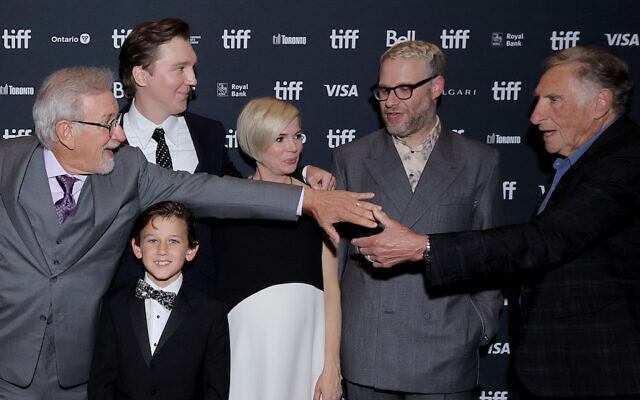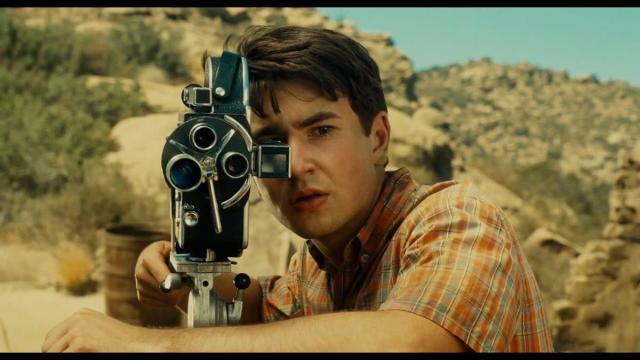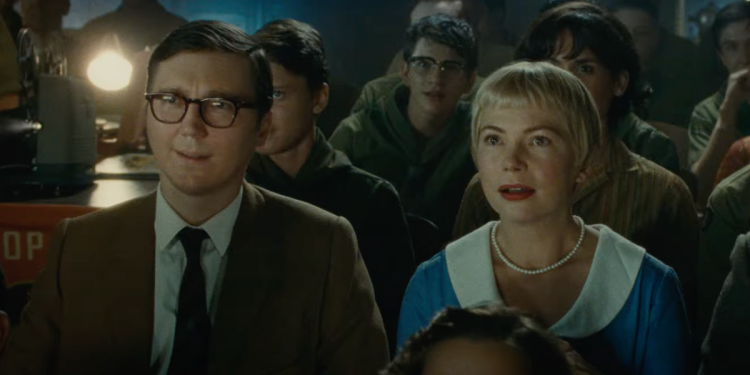Incluvie Foundation Gala - Learn More
TIFF ‘22 Coverage: ‘The Fablemans’
'The Fablemans' is Spielberg's most personal work to date, the cast delights audiences at the TIFF premiere.
The Fabelmans (2022)


Steven Spielberg’s meditation on his life and career dazzles audiences with TIFF People’s Choice Award Winner, The Fablemans
Steven Spielberg’s latest film drew crowds in droves for screenings at the Toronto International Film Festival. The Fablemans is an autobiographical love letter to his most formative years and the passions that saw him through his most difficult times. Sammy Fableman, (played chiefly by newcomer Gabriel LaBelle) falls in love with cinema at a very young age, and this film does a lot to convey just how precious of a device this has been for Spielberg, but the true majesty in this film stems from its deconstruction of his memories of his family.
Spielberg clarifies in the post-screening Q&A at TIFF that this film is in no way a swan song and he has not decided to retire, so worry not! That being said, this is his most personal work to date. Through his forthcoming depiction of his parents, dedicated fans may start stringing together common themes of parenthood from previous films. Indeed they all accumulate here, and instead of using the time spent on creating this film to craft an intimate farewell, he delved into this subject matter to give himself the space to reflect and unpack the events that shaped him as a man and artist.

The most challenging part, the director says, was the task of casting members of his family. He wanted to curate personalities that he felt a strong connection to so he could feel at home while staging these vignettes of his life for the world to see. The ensemble carries their weight not only in their individual performances but in the incredible feat of conveying the Fableman family as a succinct unit. LaBelle especially personifies an influence from both his father, who is a science-savvy technical thinker, and his mother who is a free spirit and an artist to her core. The duality he exemplifies as he grows from boy to man is a wonder to behold. LaBelle incorporates maturity and authenticity when Sammy goes through challenging experiences and balances them perfectly with unabashed joy when a camera is in his hands. The sweetness and comedy that’s baked in make the nearly 3-hour runtime fly by. The performances are all cohesive and compliment one another with precision, which is most important when portraying something as influential as a family. Through their nuanced performances, we can easily see what each character’s strengths and shortcomings are and how they all play into the larger picture of Sammy’s life.

Michelle Williams, who plays Mitzi Fableman (Leah Spielberg), has entered the awards conversation. She simply transforms in order to play a character with such complexity in a way that seems grounded in truth. It is apparent that Mitzi has an unnamed mood disorder that causes her to rapidly swing between fits of mania and depression, resulting in erratic behavior that drastically effects the disposition of her family. Williams is careful not to dawn this behavior in a way that comes off as a caricature of a mentally ill person, or even as an eccentric artist. She is simply a devoted mother who has an overflowing love for her family, expressing herself the only way she knows how while struggling to pursue her own happiness.

The dynamic between Williams and Paul Dano, who plays Burt Fableman glides so evenly across the story that it is genuinely heartbreaking to watch it come to an end. Spielberg often speaks about needing to “put an alien between himself and his life” as sort of a coping mechanism, and that theme is delicately interspersed throughout this film, especially in the scene where his home life begins to unravel. Anti-semitism is also incorporated in Sammy’s high school years, but Spielberg had no intention for that theme to override the overall tone of the film, he simply includes it as an aspect of his growing up, but not a “governing force” of his life. The editing and shot choice in The Fablemans brings the story’s emotional tone to the surface in a way that doesn’t wack the audience over the head with its intentions. The film is composed in a way that thankfully avoids overwhelming sadness and stress, there is no melodrama, it is just honest.
For screenwriter Tony Kushner, this story is about “film as an unreliable friend”, and Fabelmans flawlessly conveys the rollercoaster of reflecting on your life through art. This film is cathartic, not only for Spielberg, but for anyone who relies on their art to help them cope, heal, control, express, and love. The unique flavor of this film is that it examines a troubled youth through an empathetic lens that only years of retrospection can offer. It doesn’t rely on tragedy to bear its weight. Instead, it embodies a wonderment that isn’t as popular in film these days, as though joy has gone out of style. The Fablemans is bright, bursting with color, and energy, and features a cast of characters that are always growing and learning.
More to explore
By Same Author
Related lists created by the same author




